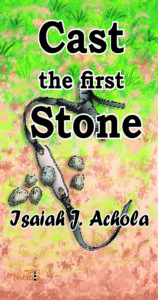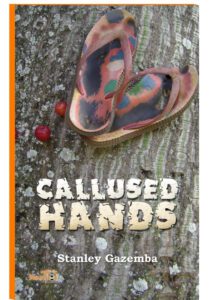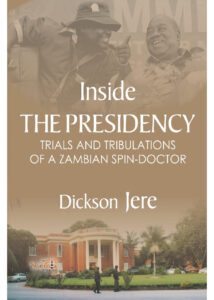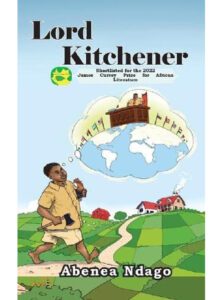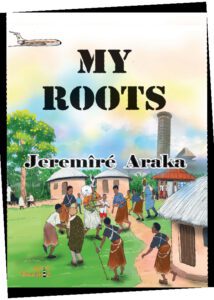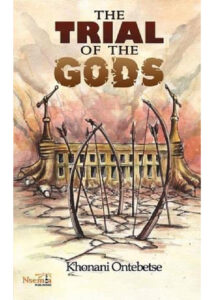
- Title: The Trial of The Gods
- Year: 2011
- Author: Khonani Ontebetse
- Publisher: Nsemia Inc. Publishers, Ontario, Canada
- Reviewed on: April 19, 2012
Khonani Ontebetse is a contemporary writer from Botswana. He won the Bessie Head Literature Award (2008) with his novel Born with a Husband. Bessie Head (1937-1986), a child of trans-racial relationship is a canonical writer in African literature. Thus Khonani does not claim premiership, he is treading a beaten path. What sets him apart is his understanding of emerging issues and how he treats them as a writer. He is satirical, humorous, and even grim in his portrayal of government officialdom.
In his novel The Trial of the Gods (Nsemia), Khonani reconstructs a court battle pitting a minority community in Botswana with the government. The Basarwa people live in the Kalahari Desert. The author presents the story of a backwardly indigenous people whose economic activity is limited to hunting and gathering. Among the Basarwa, “the eland is the most potent animal, close to the gods, and has immense spiritual power” of protection. “That power is present in the male fats,” like what some people associated with pork. The Basarwa’s socio-political life revolves around the sacred trance dance. Their clinging to traditional lifestyle is cause for contempt by those who have embraced modernity.
That lifestyle is ruthlessly disrupted by a deceptive government with the discovery of diamonds in the Kalahari. They are evicted forcefully; houses are demolished; locals are relocated. A remorseless “fat government” with “arrogant ministers” gets satisfaction in “naked pride,” and “enjoy monopoly on the knowledge of resources.” Political activist Jay Setlhare is harassed by government for making “serious allegations that the relocation is linked to diamonds.”
The motive of eviction is shrouded in secrecy. The people are promised piped water, electricity, nay, civilization! In new settlements, without skills, they become idle, are drawn to alcohol and prostitution. The work of NGOs in social welfare comes under sharp scrutiny and Khonani does not shy from asking the difficult question about the sincerity of its major players. Mistrust among the political class which threatens the struggle is a theme that runs through the narrative.
Khonani is a serious writer. He destroys the notion paraded by some writers that one must subject a good novel to a love story. However, it seems to me implausible that any person can be admitted to the hallowed shrines of ritualistic performance without first being purified.
A casual reading of the text belies a community where change is anathema, where women are confined to domestic chores and childbearing. But when we scratch the surface, we find that in fact, the community’s political sphere is embedded in women. Their role is poignantly captured in the characters of Qoero “a pillar of strength” whose mysterious death is “part of the struggle” and Mmese. “Mmese faced the sky, and seemed to be fascinated by it. Perhaps it was because there were many stars in the sky. They sparkled but ominously mocked her. They reminded her part of the truth.”
The truth comes from ancestors. The Basarwa will win, but there will be “more danger,” perhaps from mining activities. Reader, what do you know about the discovery of oil in Turkana? Some hapless and unsuspecting pastoralist may have been cheated out of land by a cabal of greedy speculators! In The Trial of the Gods, “Jay had learnt that the best kept secret in CKGR after all, was not the discovery of diamonds by the powerful and corruptible who wanted to come up with a new deadly route in humanity, but his people’s ancient simple lifestyle.” The pen is dangerous and can get that close!
NB: this review appeared in the Star newspaper of Nairobi on April 19, 2012
Khainga O’Okwemba

